World Water Day falls on Mar 22 every year and is internationally observed by the United Nations (UN). In line with UN’s Sustainable Development Goal 6 (SDG 6) to “ensure availability and sustainable management of water and sanitation for all”, World Water Day also serves to highlight the plight of the 2.1 billion people in the world still living without access to safe water at home (WHO/UNICEF, 2017).
The Orang Asli represent 0.5% of Malaysia’s population and are scattered throughout Peninsular Malaysia, with the largest population concentrated in Pahang. They are attuned to life deep in the forests and live off natural resources.
Traditionally, the Orang Asli rely on surface water like streams and ponds. For those who choose to abandon their nomadic lifestyle and settle down instead, they would dig wells in their village as their main source of water.
However, agricultural, mining, and logging activities have drastically affected their surroundings and water supply. Swamps and streams that used to run clear are now clogged with dirt and debris, some becoming stagnant as the changing landscape cuts off their water source.
As more and more forests that serve as water catchment areas are being cleared, two immediate problems arise to threaten the lives of the Orang Asli – water pollution and water scarcity.
Life Without Choices
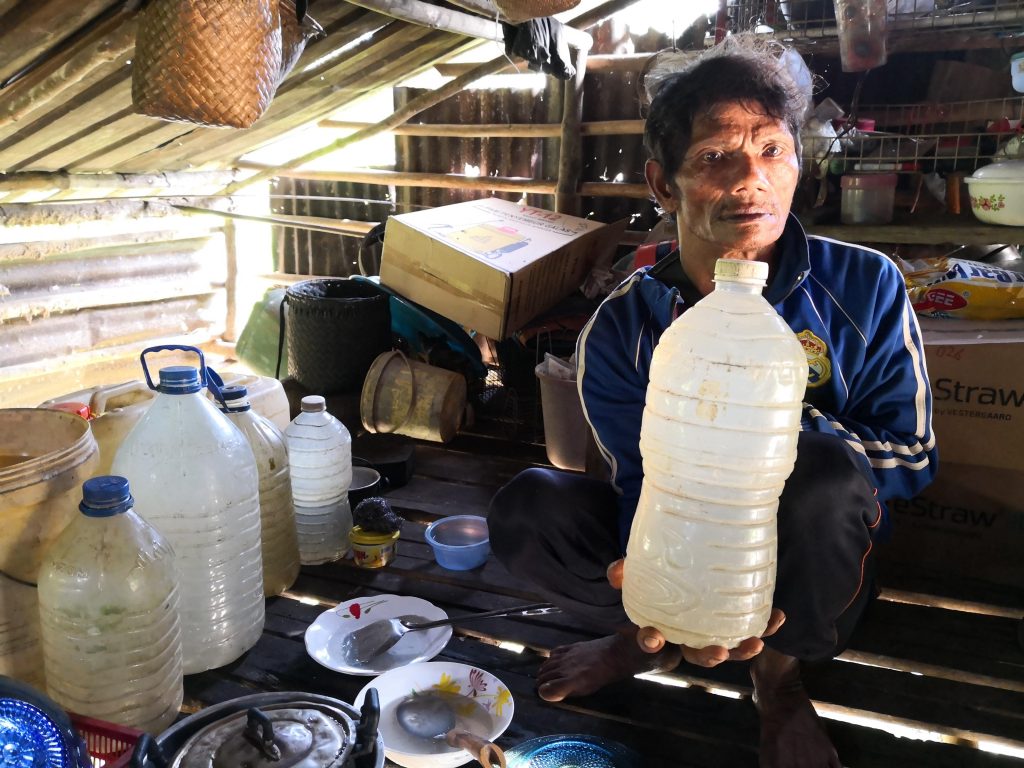
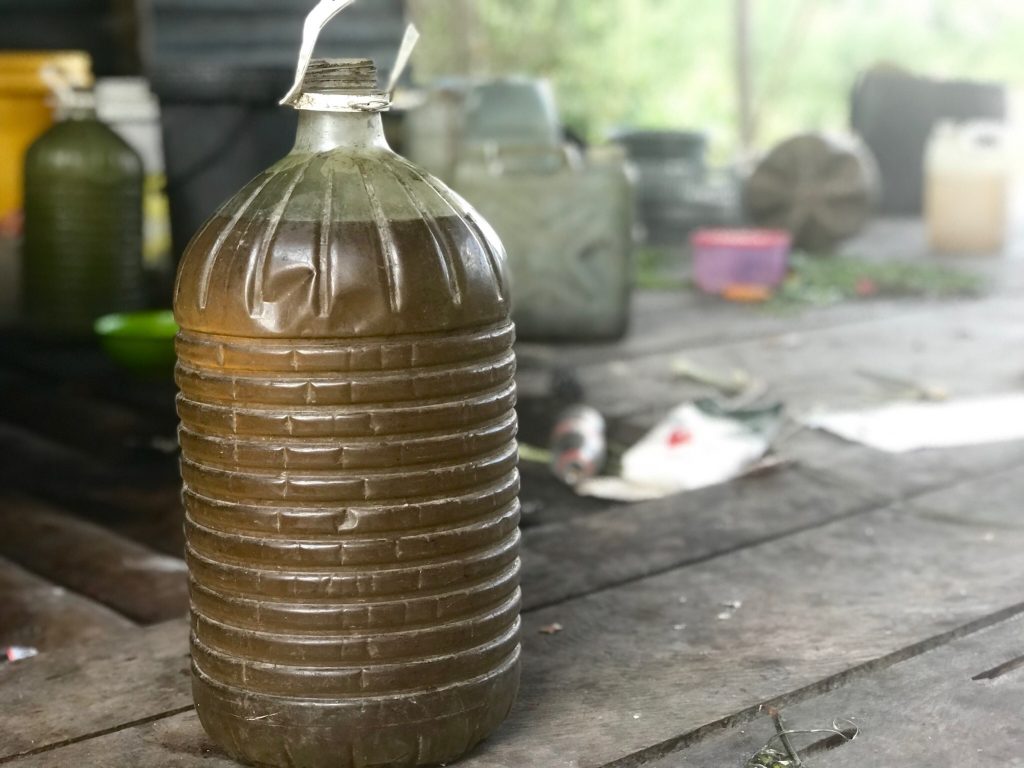
The water quality in these rural villages are very poor. Due to the high amount of dissolved and suspended particles in the water, its appearance range from cloudy to muddy. Villagers complain that the water has a metallic and bitter aftertaste.
Water lab tests conducted on these samples reveal a high amount of E.coli, Coliform, and bacteria, with the highest being 7,550 Cfu/ml. The acceptable limit for drinking water standard is 0.
When the natural landscape is modified by human activities, the water cycle is also interrupted. The ponds and wells near the Orang Asli villages began to dry up, and they have to go further and further to find new water sources. During the drought season, it becomes even harder to search for water.
Yet, they have no choice but to continue relying on these contaminated water sources as it’s the only one available to them. We discovered that waterborne (diarrhoea and vomiting) and water-washed diseases (skin rashes and sores) are far too common in these communities.
Diarrhoea and vomiting occurs from drinking or using the dirty water in food preparation without prior filtering or boiling. “Contaminated water can transmit diseases such as diarrhoea, cholera, dysentery, typhoid, and polio. Contaminated drinking water is estimated to cause 502,000 diarrhoeal deaths each year (WHO)”.
Washing with unclean water also leads to skin diseases that worsen over time if left untreated. Crippled by poor health, the Orang Asli find themselves missing out on work and education opportunities, trapping them in a vicious cycle of poverty and hardship.
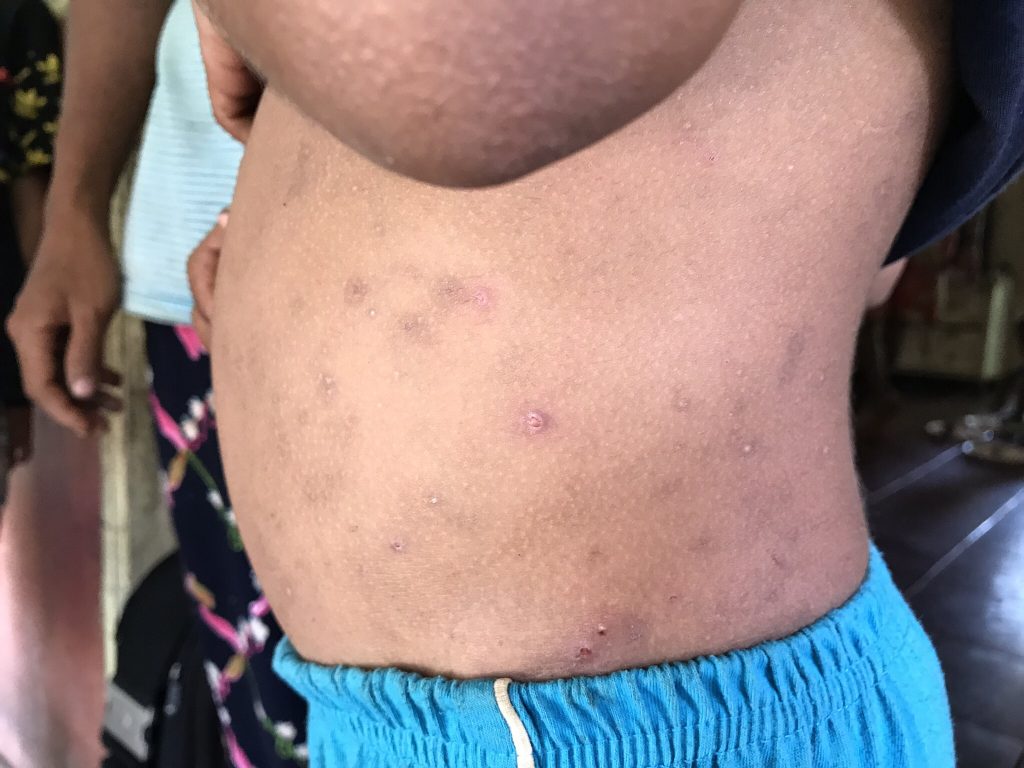
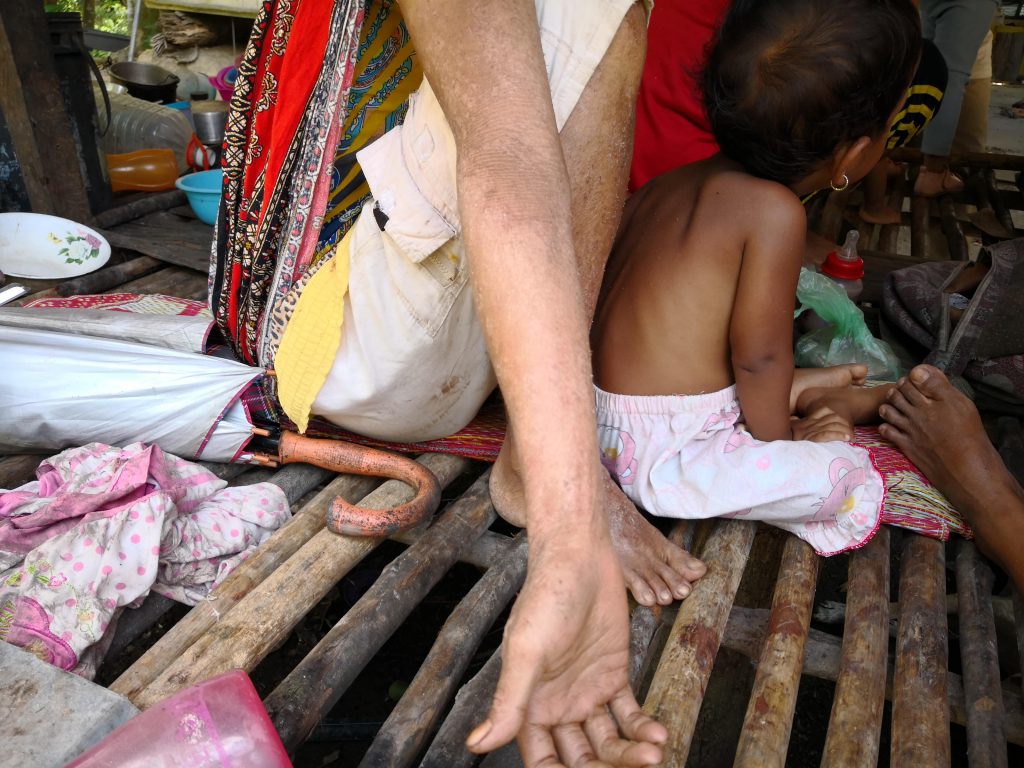
Adults have to miss out on working days when they fall sick, losing out on valuable income that is needed to support their life. These underserved communities are already in the bottom B40 income group, with some living below the national poverty line. Losing out on a day’s worth of work is something they cannot afford to do.
Children have to skip school when they fall sick. When they miss out on too many days of schooling, they either become demotivated and decide to drop out or are expelled by the school itself. Education is an important tool that the younger Orang Asli generation need to lift themselves from poverty. If children continue to drop out of school, the future of these communities remain bleak.
The responsibility of fetching and preparing water for consumption falls on women. On average, women walk 6km a day and carry 25L of water per trip (UN). The amount of hours lost and the physical and mental strain that these women go through is a daily burden that they bear in silence. On top of that, preparing the water for consumption is a tedious process that takes anywhere between two to five hours. Wood has to be collected to start a fire and the boiled water has to be cooled before it can be stored.
The bleak reality remains that they are left with no other option but to continue living this way.
Water Issue Eroding the Orang Asli’s Identity
Ayu lives in Kampung Sandar and is mother to two children, Adanial (9) and Alfoyu (4). Adanial has been hospitalised twice for severe stomach pain. He threw up everything he ate and fainted from weakness and dehydration. The doctors diagnosed it as parasitic worm infections, likely caused by drinking untreated water.
Knowing this, Ayu still has no choice but to continue using the contaminated well and swamp water for her family’s daily use. Every day she is physically burdened with the task of fetching water several times a day. Every night, she is emotionally strained with worry over which of her children will fall sick next.
Water poverty is an everyday peril to the community but for the women tasked with fetching water, it is a threat that is slowly eroding their identity as an orang asli, a mother, and a woman.
Communities Unite for Purewater: A Clean Water Initiative
Since 2014, Global Peace has been actively supporting the clean water cause through our Communities Unite for Purewater (CUP) initiative. To date, we’ve impacted 43 communities across Malaysia, the majority of which are Orang Asli surviving below the national poverty line.
The programme serves to address three main issues – providing clean drinking water, improving accessibility to water, and introducing behavioural changes to hygiene and sanitation through WASH Training.
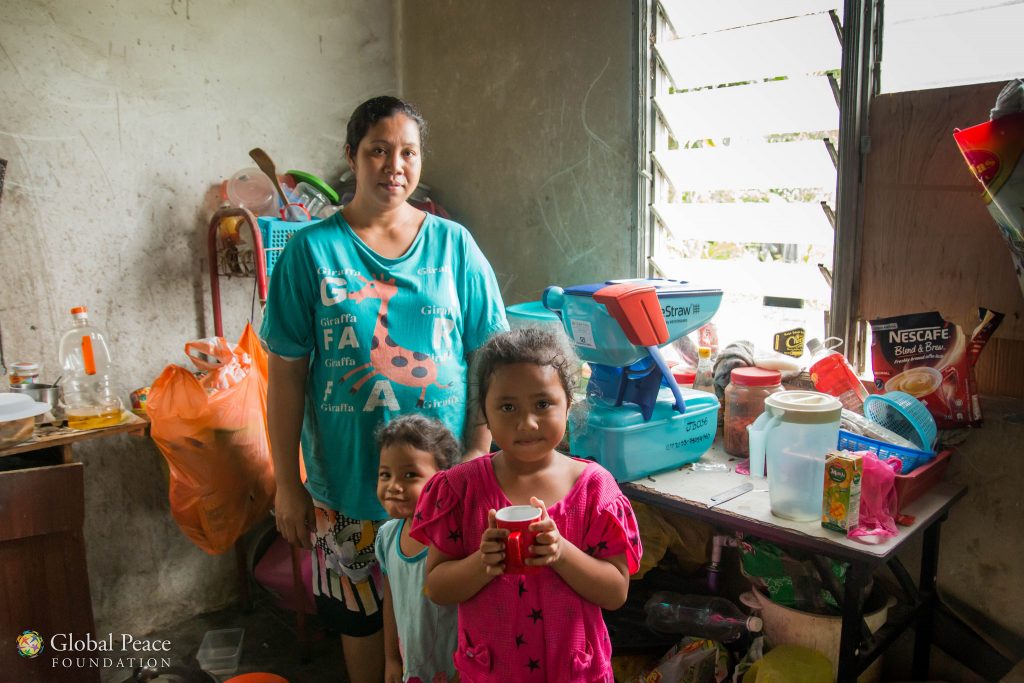
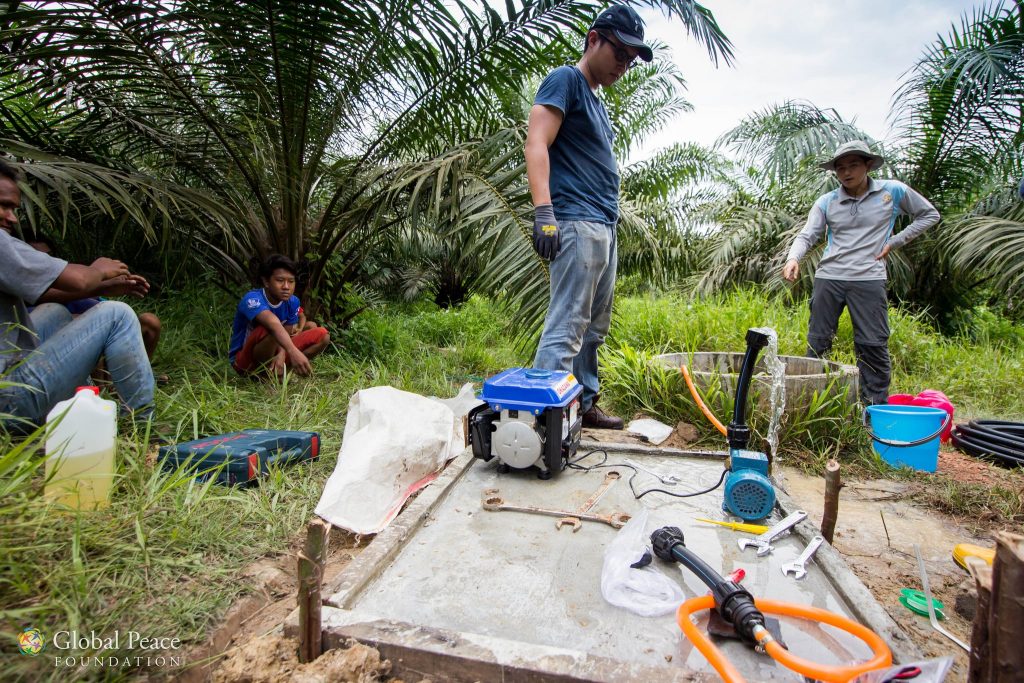
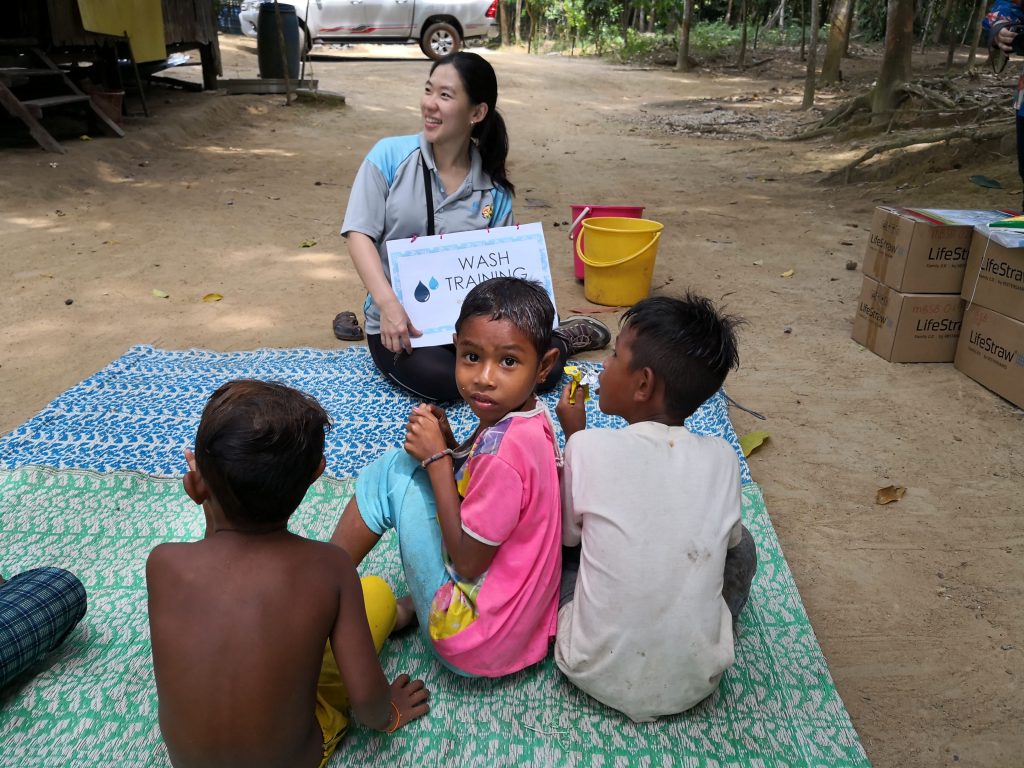
Ensuring that each family has access to clean drinking water is as simple as setting up a filtration system in each home. Drinking and cooking with clean, filtered water will greatly reduce the occurrence of waterborne diseases. Improved health means improved productivity; adults can consistently go to work and earn an income and children are able to grow up strong and healthy.
Women, who are the main water managers, can spend less time on gathering firewood and boiling water. With the filter, they will only need to fill it with water to have readily-available clean drinking water.
Improving accessibility to water involves the entire community in every stage of the process, from coming up with a plan, managing the materials and equipment needed, constructing the well and water supply system, and monitoring the project after completion. By doing this, the community takes charge of the project, has greater accountability, and is able to resolve technical issues on their own. This empowers them to be resourceful and rely on their own skills to better their community.
Water, Sanitation, and Hygiene (WASH) Training is the educational aspect that complements the technical solutions provided to the village. Through storytelling, photos, and engaging activities for both adults and children, the training aims to raise awareness on how small changes can improve their health and save lives.
The CUP clean water initiative begins with addressing the pressing needs of the community revolving around water, sanitation, and hygiene. In the long run, Global Peace continues to engage the community through other sustainable development initiatives to uplift and improve their lives, ultimately working towards community empowerment.
As we progress and enjoy the modern world’s comforts, let’s not forget the minorities, ruralites, and destitute who so often get left behind. This year on Mar 22, we ask you to support World Water Day and United Nation’s Sustainable Development Goals to #LeaveNoOneBehind.
How you can make a difference:
- Collaborate – Partner with us to bring a clean water project to a community in need. Be part of businesses and organisations that support UNSDGs 2030!
- Donate – Contribute to uplift the welfare of families and children suffering from water poverty.
- Advocate – Spread the word, share our posts on social media, start a fundraiser, or be a volunteer.
“Whoever you are, wherever you are, water is your human right #waterforall”
Written by
Yong Joy Anne, Storyteller






